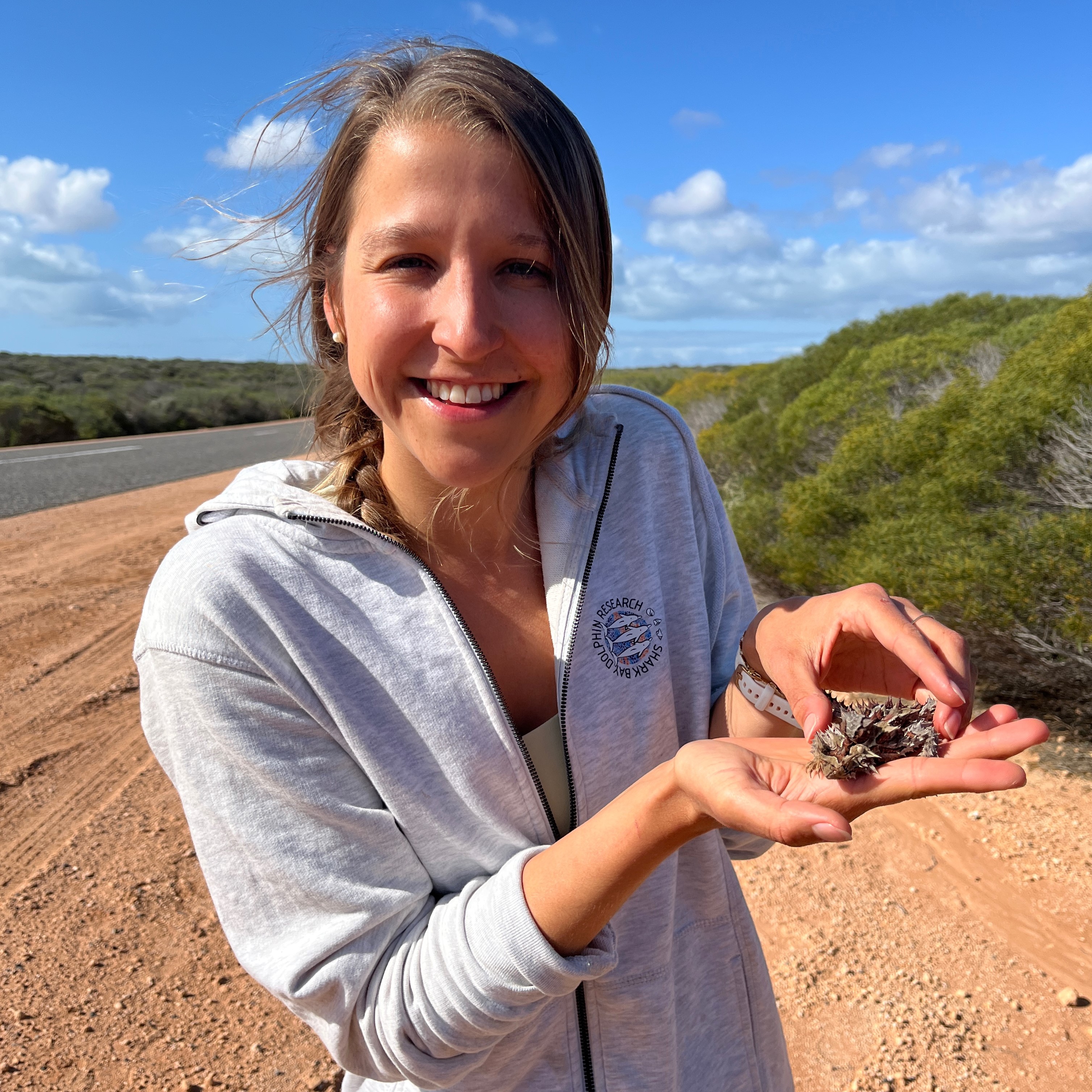Svenja Marfurt
Research Interest

I am interested in genomics, landscape genomics, and its marine equivalent—seascape genomics—which integrates environmental and genetic data to explore the evolutionary history, population structure, and adaptive potential of species in heterogeneous environments. My research spans from the field and lab, where I collect and generate high-quality genomic data, to computational analyses on high-performance computing clusters. Using bottlenose dolphins as a model system, I apply genome-environment association analyses, population genomic approaches, and predictive modeling to understand how environmental variation shapes genetic differentiation—both past and present—and to anticipate the genomic consequences of future climate change. Ultimately, I aim to contribute to the growing effort to harness genomic data for effective biodiversity conservation.
Academic Record
| Since 2021 |
PhD candidate, Department of Evolutionary Anthropology, University of Zurich, Switzerland Shark Bay Dolphin Research |
| 2019 / 2020 |
MSc Biology (2019) with minor in Bioinformatics (2020) at University of Zurich, Switzerland MSc thesis: Using social network analysis to investigate association patterns and community structure of female Indo-Pacific bottlenose dolphins (Tursiops aduncus) |
| 2017 | BSc Biology at University of Zurich, Switzerland and University of Queensland, Australia |
Research Bio
Using seascape and predictive ecological genomics to investigate evolutionary history, differentiation and the adaptive potential of bottlenose dolphins (Tursiops aduncus) in Australian waters
Improving our understanding of how organisms have adapted to past environmental heterogeneity—and to what extent their current genetic diversity may enable future adaptation—is increasingly important as coastal ecosystems face mounting pressures from extreme climatic events. My PhD project combines large-scale environmental data with high-quality genomic data—collected using a remote biopsy system—to investigate the relationship between genetic and environmental variation across Australian bottlenose dolphin populations, a sentinel species for coastal ecosystems.
To understand both neutral and adaptive genetic differentiation, I first used reduced-representation sequencing (ddRAD) to explore population structure, demographic history, and genome-environment associations along the Western Australian coastline. In a second step, I apply whole-genome sequencing (WGS) to samples from both the west and east coast to detect candidate loci under selection at high resolution and gain insight into the physiological basis of local adaptation.
Finally, I use predictive genomic approaches to model how ongoing climate change may disrupt current genotype-environment associations and reshape patterns of genomic differentiation in these coastal dolphin populations.
Academic Record
| Since 2021 |
PhD candidate, Department of Evolutionary Anthropology, University of Zurich |
|
2019/2020 |
MSc Biology (2019) with minor in Bioinformatics (2020) MSc thesis: Using social network analysis to investigate association patterns and community structure of female Indo-Pacific bottlenose dolphins (Tursiops aduncus) |
| 2017 | BSc Biology |
Publications
- Marfurt, S. M., Chabanne, D. B. H., Wittwer, S., Bizzozzero, M. R., Allen, S. J., Gerber, L., Nicholson, K., & Krützen, M. (2024). Demographic History and Adaptive Evolution of Indo-Pacific Bottlenose Dolphins (Tursiops aduncus) in Western Australia. Molecular Ecology. https://doi.org/10.1111/mec.17555
- Wittwer, S., Gerber, L., Allen, S. J., Willems, E. P., Marfurt, S. M., & Krützen, M. (2023). Reconstructing the colonization history of Indo‐Pacific bottlenose dolphins (Tursiops aduncus) in Northwestern Australia. Molecular Ecology. https://doi.org/10.1111/mec.16984
- Marfurt, Svenja M; Allen, Simon J; Bizzozzero, Manuela R; Willems, Erik P; King, Stephanie L; Connor, Richard C; Kopps, Anna M; Wild, Sonja; Gerber, Livia; Wittwer, Samuel; Krützen, Michael (2022). Association patterns and community structure among female bottlenose dolphins: environmental, genetic and cultural factors. Mammalian Biology - Zeitschrift für Säugetierkunde, 102(4):1373-1387. https://doi.org/10.1007/s42991-022-00259-x